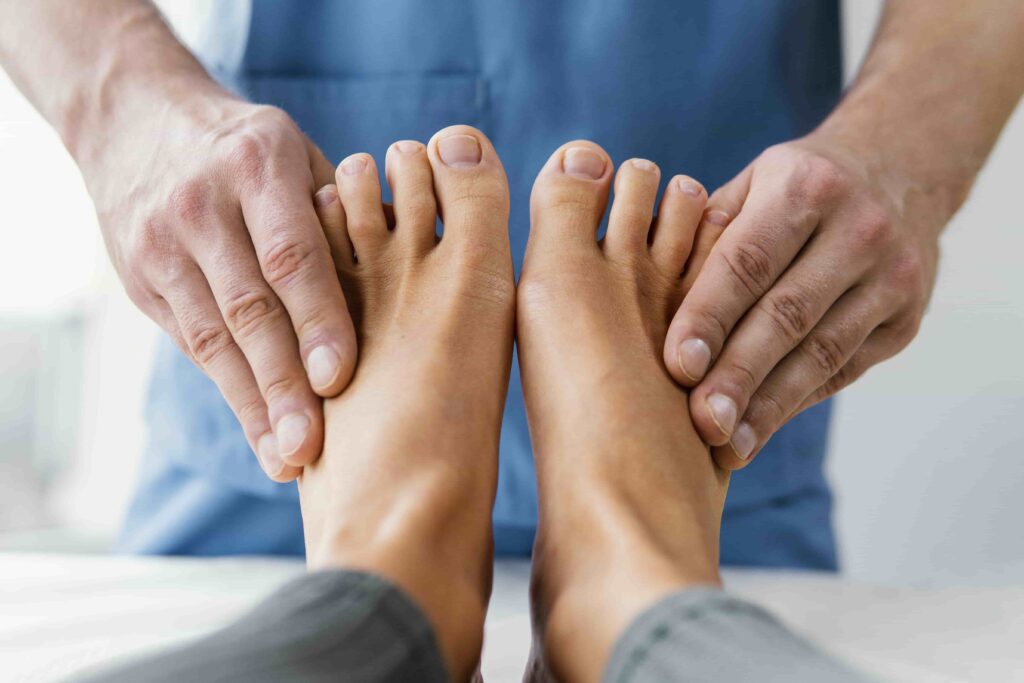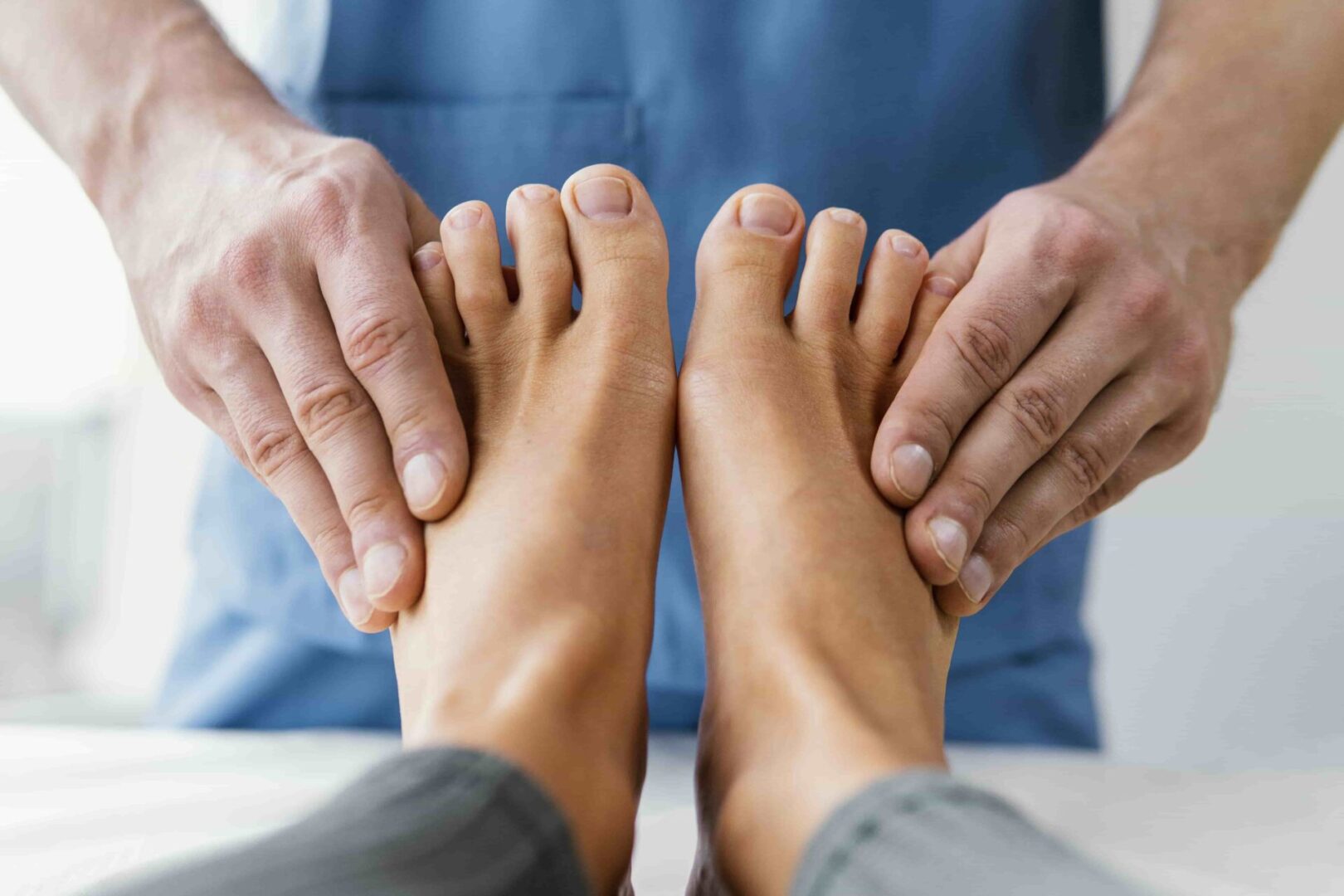What Does a Foot Specialist Do
If you’ve been dealing with foot pain, discomfort, or any other issues related to your feet, you might find yourself asking, “What does a chiropodist do?” Chiropodists are specialized healthcare professionals focused on diagnosing, treating, and preventing foot and lower limb disorders. Although the term “chiropodist” is sometimes used interchangeably with “podiatrist,” particularly in the UK and other Commonwealth countries, chiropodists often focus more on non-surgical treatments and foot care. In this comprehensive guide, we will explore the key responsibilities of a chiropodist, the types of treatments they provide, and how they can assist you in maintaining healthy feet. Understanding what a chiropodist does can help you make informed decisions about your foot health and seek the appropriate care when needed.

What Does a Chiropodist Do? An Overview
Understanding the Role of a Chiropodist
A chiropodist is a healthcare professional trained to assess, diagnose, and treat conditions related to the foot and lower limb. They are skilled in managing both common foot problems and more complex issues that require ongoing care. Here’s a breakdown of what a chiropodist does:
- Foot and Lower Limb Assessment: Chiropodists conduct thorough assessments to diagnose foot and lower limb conditions. This process includes physical examinations and medical history evaluations and may involve the use of diagnostic tools like X-rays or ultrasound when necessary.
- Treatment and Management: Once a diagnosis is made, chiropodists develop individualized treatment plans tailored to each patient’s needs. These plans often include a combination of conservative treatments such as custom orthotics, medications, and lifestyle advice.
- Minor Surgical Procedures: Chiropodists are qualified to perform minor surgical procedures, such as the removal of ingrown toenails or treatment of verrucas (plantar warts). These procedures are typically done in the office and require little to no downtime.
- Preventive Foot Care: A significant aspect of what a chiropodist does is educating patients on how to care for their feet to prevent future problems. This includes advice on proper footwear, foot hygiene, and exercises to maintain foot health.
- Patient Education and Lifestyle Advice: Chiropodists play a key role in educating patients about their foot health. They guide foot hygiene, nail care, and the importance of wearing the right footwear to prevent or manage foot problems.
- Collaborative Care: Chiropodists often collaborate with other healthcare providers, such as general practitioners, dermatologists, and orthopedic specialists, especially in cases where foot problems are linked to broader health conditions like diabetes or arthritis.
Common Conditions Treated by Chiropodists
Chiropodists treat a wide range of conditions that affect the feet and lower limbs. Here are some of the most common issues they handle:
- Corns and Calluses: These are areas of thickened skin that develop due to repeated pressure or friction. Chiropodists can safely remove corns and calluses and provide advice on how to prevent them from recurring.
- Ingrown Toenails: An ingrown toenail occurs when the edge of a toenail grows into the surrounding skin, causing pain and sometimes infection. Chiropodists can treat this condition by trimming the nail and, in more severe cases, performing a minor surgical procedure to remove part of the nail.
- Verrucas (Plantar Warts): Verrucas are warts that appear on the soles of the feet. They can be painful, especially when located in weight-bearing areas. Chiropodists offer treatments such as cryotherapy (freezing) or topical medications to remove verrucas.
- Fungal Nail Infections: Fungal infections can cause nails to become discolored, thickened, and brittle. Chiropodists provide treatments like antifungal medications and advice on how to prevent the infection from spreading.
- Flat Feet and High Arches: Both flat feet and high arches can lead to discomfort and other foot problems. Chiropodists assess the foot structure and recommend orthotic devices or exercises to alleviate symptoms.
- Diabetic Foot Care: Diabetes can lead to serious foot problems, such as ulcers and infections, due to poor circulation and nerve damage. Chiropodists play a crucial role in the regular monitoring and care of diabetic feet to prevent complications.
- Heel Pain (Plantar Fasciitis): Plantar fasciitis is a common cause of heel pain, resulting from inflammation of the tissue that runs across the bottom of the foot. Chiropodists provide treatments such as orthotics, stretches, and sometimes physical therapy to relieve pain and promote healing.
How to Choose the Right Chiropodist
Selecting the right chiropodist is essential to receiving effective and personalized foot care. When looking for a chiropodist, consider the following factors:
- Experience and Qualifications: Ensure the chiropodist you choose is licensed and has the necessary qualifications. Look for a practitioner with extensive experience in treating a variety of foot conditions.
- Specialization: Some chiropodists may specialize in specific areas, such as diabetic foot care, sports injuries, or pediatric foot care. Choose a chiropodist with expertise in the area that aligns with your needs.
- Reputation: Reading reviews and testimonials from previous patients can give you a better understanding of a chiropodist’s practice. Pay attention to feedback about the effectiveness of treatments and the overall patient experience.
- Location and Accessibility: Consider the location of the chiropodist’s clinic and their availability. It’s important to select a provider who is easily accessible and can accommodate your schedule, especially if you require regular visits.
When to See a Chiropodist
Recognizing when to see a chiropodist can prevent minor issues from developing into more serious problems. Here are some signs that it’s time to schedule an appointment:
- Persistent Foot Pain: If you’ve been experiencing foot pain for more than a few weeks, it’s important to see a chiropodist. Persistent pain could be a sign of an underlying condition that needs professional evaluation.
- Difficulty Walking or Standing: If foot pain or discomfort is making it difficult for you to walk or stand, a chiropodist can help diagnose the problem and recommend appropriate treatment.
- Changes in Skin or Nails: Any noticeable changes in the skin or nails of your feet, such as thickened toenails, discoloration, or the development of corns and calluses, should be assessed by a chiropodist.
- Diabetic Foot Complications: If you have diabetes, regular visits to a chiropodist are essential for monitoring your foot health and preventing complications like ulcers and infections.
- Foot Deformities: If you notice any changes in the shape of your feet, such as the development of bunions, hammertoes, or flat feet, a chiropodist can provide treatment to correct or manage these deformities.
Treatments Offered by Chiropodists
Chiropodists provide a wide range of treatments aimed at addressing foot and lower limb conditions. These treatments can be categorized into conservative (non-surgical) and minor surgical procedures.
Conservative Treatments
- Custom Orthotics: Orthotic devices are custom-made shoe inserts designed to support the feet and correct abnormal walking patterns. Chiropodists often prescribe orthotics to relieve pain and improve foot function in conditions like flat feet, plantar fasciitis, and high arches.
- Footwear Advice and Modifications: Chiropodists provide expert advice on the best footwear for your specific needs. They may recommend shoes that offer better support, cushioning, or room for orthotic devices and can also suggest modifications to existing footwear to alleviate discomfort.
- Skin and Nail Care: Regular care of the skin and nails is crucial for foot health. Chiropodists provide treatments for corns, calluses, and fungal infections and offer guidance on proper foot hygiene and nail care to prevent issues from recurring.
- Physical Therapy: Chiropodists may recommend physical therapy exercises to strengthen the muscles in the feet and lower limbs, improve flexibility, and promote healing after an injury or surgery.
- Medication: Depending on the condition, chiropodists may prescribe topical or oral medications to manage pain, inflammation, or infections. This can include antifungal treatments, antibiotics, or anti-inflammatory drugs.
- Lifestyle and Self-Care Advice: Chiropodists offer advice on lifestyle changes that can improve foot health, such as maintaining a healthy weight, engaging in regular physical activity, and practicing good foot hygiene.
Minor Surgical Procedures
While chiropodists focus primarily on non-surgical treatments, they are also trained to perform minor surgical procedures when necessary. Here are some common procedures:
- Ingrown Toenail Removal: If an ingrown toenail is causing severe pain or infection, a chiropodist can remove part or all of the affected nail to relieve discomfort and prevent the condition from worsening.
- Verruca Removal: Verrucas can be stubborn and painful, particularly when they are located on the soles of the feet. Chiropodists offer various treatments, including cryotherapy and minor surgical removal, to eliminate verrucas.
- Corn and Callus Removal: Chiropodists can safely remove corns and calluses using specialized tools, providing immediate relief from discomfort and preventing the thickened skin from returning.
- Diabetic Foot Ulcer Management: For patients with diabetes, chiropodists are trained to manage foot ulcers, which are open sores that can become infected if not properly treated. This may involve cleaning the wound, applying dressings, and providing guidance on how to care for the ulcer at home.
The Importance of Ongoing Foot Care
Maintaining healthy feet requires ongoing care, even after receiving treatment from a chiropodist. Here are some tips to ensure your feet remain in good condition:
- Regular Foot Inspections: Check your feet daily for any changes or signs of problems, such as cuts, blisters, or changes in skin color. Early detection of issues is key to preventing serious complications.
- Proper Foot Hygiene: Keep your feet clean and dry to prevent infections. Wash your feet daily with soap and water, and make sure to dry them thoroughly, especially between the toes.
- Moisturize: Apply a good-quality moisturizer to your feet to prevent dry, cracked skin. Avoid applying moisturizer between the toes, as this can create a moist environment that promotes fungal infections.
- Wear the Right Shoes: Choose footwear that fits well and provides adequate support. Avoid high heels and shoes with narrow toe boxes for extended periods, as these can contribute to foot problems.
- Stay Active: Regular exercise helps to keep your feet and ankles strong and flexible. Always wear appropriate footwear when exercising, and start any new physical activity gradually to avoid injuries.
- Maintain a Healthy Weight: Carrying excess weight puts additional stress on your feet, increasing the risk of conditions like plantar fasciitis and arthritis. Maintaining a healthy weight can alleviate this stress and improve your overall foot health.
Conclusion: How a Chiropodist Can Help You
Understanding what a chiropodist does is essential for taking proactive steps toward better foot health. Whether you’re dealing with a common condition like corn and calluses or a more complex issue like diabetic foot care, a chiropodist can provide the expert care you need. Their role in diagnosing, treating, and preventing foot problems is crucial for maintaining your mobility and overall well-being.
If you’re experiencing any foot pain or discomfort, it’s important to consult with a chiropodist as early as possible. Early intervention can significantly improve treatment outcomes and prevent minor issues from becoming serious problems. Remember, your feet are the foundation of your mobility, and taking care of them should be a priority.
For those looking to learn more about foot care or find professional services, consider exploring options for online foot care. It’s a convenient way to access expert advice and products to support your foot health, all from the comfort of your home.
About Author
Hi, I’m Arezou Hassani, a Chiropodist practicing in Ontario, Canada. I hold a Bachelor of Science in Psychology and an Advanced Diploma in Chiropody. As a member of the College of Chiropodists of Ontario and other professional organizations, I have extensive experience treating foot issues for patients of all ages. I founded Footwyse to bridge innovative research with practical foot care solutions, offering virtual consultations and curated products. I’m passionate about helping people achieve optimal foot health and invite you to join me in this journey toward healthier feet.

